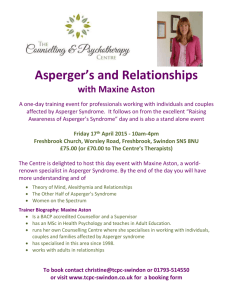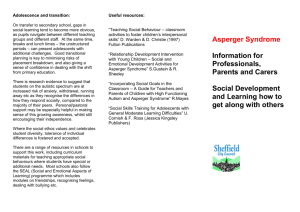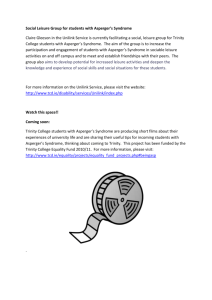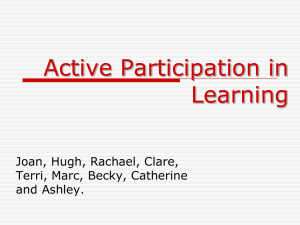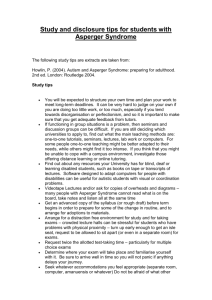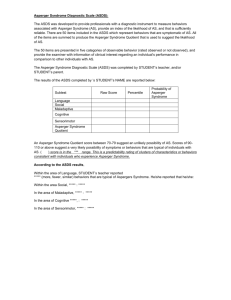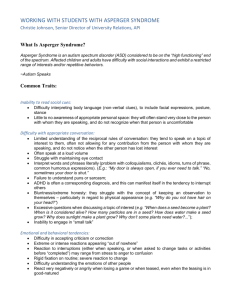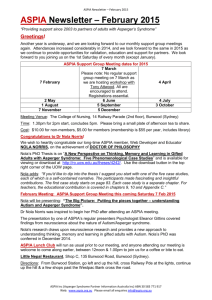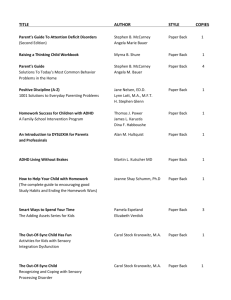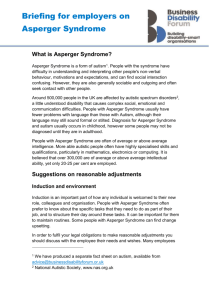Autism
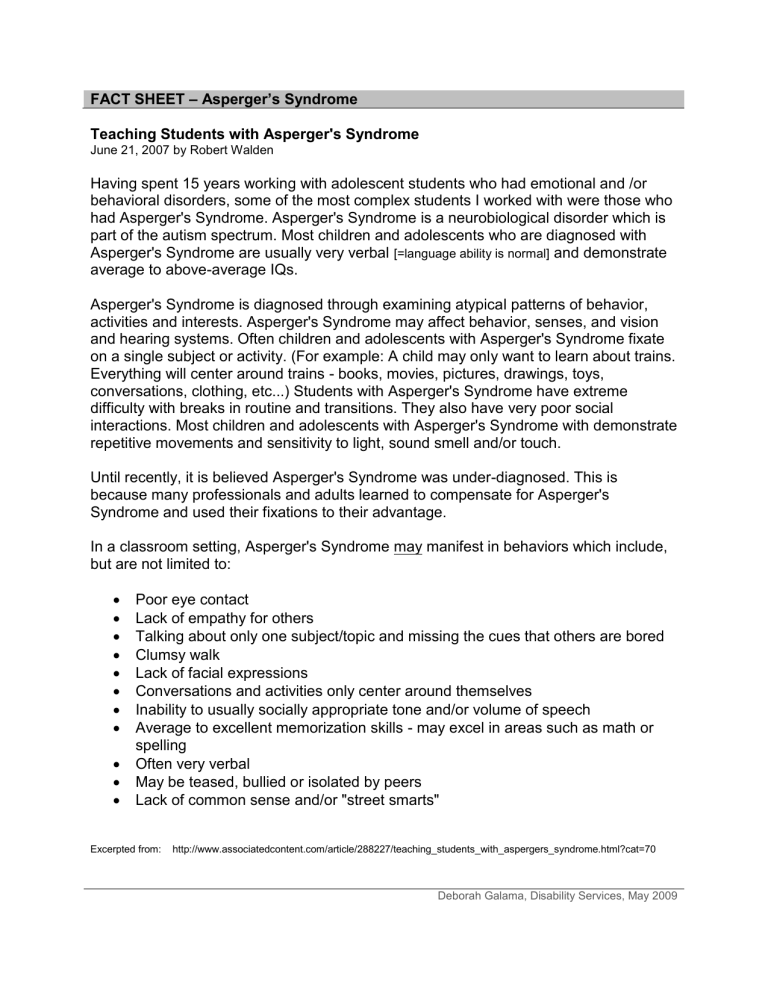
FACT SHEET
– Asperger’s Syndrome
Teaching Students with Asperger's Syndrome
June 21, 2007 by Robert Walden
Having spent 15 years working with adolescent students who had emotional and /or behavioral disorders, some of the most complex students I worked with were those who had Asperger's Syndrome. Asperger's Syndrome is a neurobiological disorder which is part of the autism spectrum. Most children and adolescents who are diagnosed with
Asperger's Syndrome are usually very verbal [=language ability is normal] and demonstrate average to above-average IQs.
Asperger's Syndrome is diagnosed through examining atypical patterns of behavior, activities and interests. Asperger's Syndrome may affect behavior, senses, and vision and hearing systems. Often children and adolescents with Asperger's Syndrome fixate on a single subject or activity. (For example: A child may only want to learn about trains.
Everything will center around trains - books, movies, pictures, drawings, toys, conversations, clothing, etc...) Students with Asperger's Syndrome have extreme difficulty with breaks in routine and transitions. They also have very poor social interactions. Most children and adolescents with Asperger's Syndrome with demonstrate repetitive movements and sensitivity to light, sound smell and/or touch.
Until recently, it is believed Asperger's Syndrome was under-diagnosed. This is because many professionals and adults learned to compensate for Asperger's
Syndrome and used their fixations to their advantage.
In a classroom setting, Asperger's Syndrome may manifest in behaviors which include, but are not limited to:
Poor eye contact
Lack of empathy for others
Talking about only one subject/topic and missing the cues that others are bored
Clumsy walk
Lack of facial expressions
Conversations and activities only center around themselves
Inability to usually socially appropriate tone and/or volume of speech
Average to excellent memorization skills - may excel in areas such as math or spelling
Often very verbal
May be teased, bullied or isolated by peers
Lack of common sense and/or "street smarts"
Excerpted from: http://www.associatedcontent.com/article/288227/teaching_students_with_aspergers_syndrome.html?cat=70
Deborah Galama, Disability Services, May 2009
